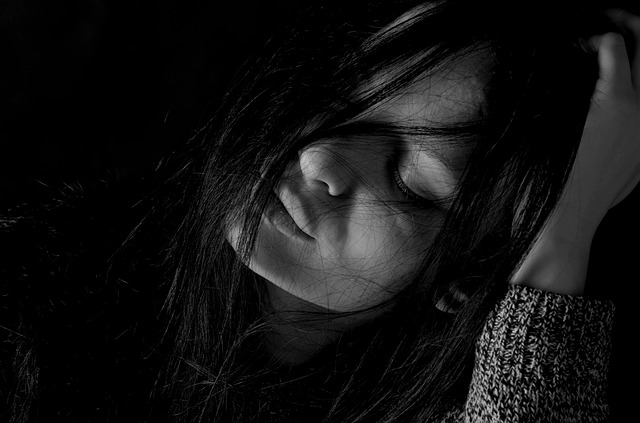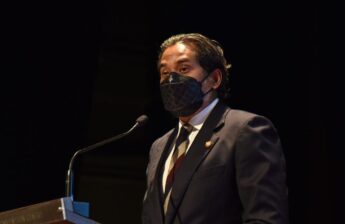KUALA LUMPUR, Sept 2 — Malaysia lacks sufficient psychiatrists by about seven times below the recommended number, with the shortage of mental health professionals particularly acute in rural states like Sabah and Kedah, said a medical group.
The Malaysian Medics International (MMI), an organisation comprising medical students, cited a 2018 paper published in the Taiwanese Journal of Psychiatry that found Malaysia had only 410 registered psychiatrists as at July 2018, with 50 per cent of them attached in Ministry of Health (MOH) facilities. The other half of psychiatrists in Malaysia are working in the Ministry of Education or Ministry of Defence, as well as the private universities and clinical practices.
This means that Malaysia has a national average of 1.27 psychiatrists per 100,000 population. According to MMI, major bodies such as the American Psychiatric Association and the World Health Organization have recommended a ratio of one psychiatrist per 10,000 population since 1962.
Therefore, Malaysia should ideally have 3,000 psychiatrists evenly distributed across the country, according to MMI in its policy brief titled “Improving Accessibility and Availability of Mental Health Services in Malaysia”.
The 2018 paper cited by MMI also revealed that Sabah and Kedah have 0.54 and 0.55 psychiatrists respectively per 100,000 population. This indicates that there is not even one psychiatrist to serve 100,000 people, in general. In contrast, Kuala Lumpur has 5.24 psychiatrists per 100,000 population.
MMI urged MOH to train and redistribute the psychiatric workforce, including psychiatric nurses and social welfare officers across the different states in Malaysia, with particular attention to the underserved rural regions. The medical group also called for better benefits and remuneration to retain psychiatrists in rural areas.
The medical body comprising medical students called on the government to repeal Section 309 of Malaysia’s Penal Code that criminalises attempted suicide with up to one year’s jail, a fine, or both, and to put a moratorium on prosecutions of suicide survivors pending the repeal.
“The question remains — why criminalise them when their attempt indicates that they may be suffering from some form of mental disorder?” MMI stated in a press release.
“We are alarmed by the recent increase in the number of suicide survivors who are being prosecuted in the court of law for attempting suicide. Acknowledgedly, with the current economic downturn, this number will continue to rise if the provision for mental health care is not improved in Malaysia.”
MMI also urged Members of Parliament to amend the Mental Health Act 2001, saying that the law does not provide sufficient protection for suicide survivors or those afflicted with mental health conditions.
MMI’s policy brief classified LGBTQ+ people, youngsters, and elderly people as vulnerable groups of people to mental health problems. LGBTQ+ is an abbreviation to represent lesbian, gay, bisexual, transgender, questioning (or queer), and other sexualities.
MOH’s National Health and Morbidity Survey 2019 found that 420,000 children in Malaysia suffered from mental health problems, dubbing mental health issues among children as a “hidden epidemic”. But MMI found that Malaysia only had 20 registered child psychiatrists in 2018, most of whom are based in Kuala Lumpur and Selangor.
MMI called on MOH to train health care professionals on addressing the mental health issues of vulnerable minorities like refugees, the undocumented population, and the LGBTQ+ community, besides banning conversion therapy for LGBTQ+ people.
MMI’s policy brief also stated that the accessibility of psychiatric services in the country is a major hurdle in providing adequate attention to Malaysians who live with a mental health issue.
It is to be noted that psychiatric services in public health facilities are free for the first visit, with subsequent visits charged at RM5. However, MMI’s policy brief stated that private health facilities would charge RM80 to RM 235 for the first visit, and each of the following visits would approximately cost between RM40 and RM105.
MMI urged the government to provide comprehensive provision of care for suicide survivors in public health care facilities.
The medical group noted that the government had established Community Mental Healthcare Centres (MENTARI) in Malaysia in 2015 to improve accessibility to mental health services. There are 22 MENTARI clinics nationwide, with at least one in each state.
“Their main objective is to rehabilitate patients with serious mental illness and reintegrate them into society. However, there are currently no published reports on the objective success of these services, nor on the popularity of their use,” said MMI.
According to WHO’s “Suicide in the World: Global Health Estimates” 2019 report, Malaysia’s age-standardised suicide rate for all ages in 2016 was 6.2 per 100,000 for both sexes. The rates were 8.7 per 100,000 and 3.6 per 100,000 for males and females respectively in Malaysia that year. But WHO cautioned that Malaysia’s data had quality issues that rendered death registration information unavailable or unusable.
The global age-standardised suicide rate for 2016 was 10.5 per 100,000. But between nations, the rates ranged from five suicide deaths per 100,000, to more than 30 per 100,000.
MMI highlighted two dimensions of the issue. Firstly, addressing the factors that lead to suicide, and secondly to provide provision of care for suicide survivors and their families.
“Suicide is often caused by an underlying mental health illness such as mood disorder, psychosis, and personality disorder,” MMI stated.
MMI also stressed the pressing need in the community to tackle mental health illness, citing the National Health and Morbidity Survey 2019 that found close to 500,000 adults in Malaysia are known to suffer from depression.
“Furthermore, suicide survivors and their families are often faced with grief, stigma, shame, isolation, and various other social as well as mental health issues which necessitate the support of a multidisciplinary team of health professionals.”
Suicide has already been decriminalised in Southeast Asian countries like Indonesia, Singapore, Thailand, Vietnam, Cambodia and the Philippines.
MMI also called the government to mandate that all suicide survivors be provided psychiatric evaluation and subsequent rehabilitation, as well as increasing funding for psychiatric, psychological, and counselling services.
MMI stated that media reports on any personal particulars in suicide cases, including the names of suicide survivors, should be prohibited.
Malaysia recorded a total of 356 suicide cases between 2014 and June 2019.








